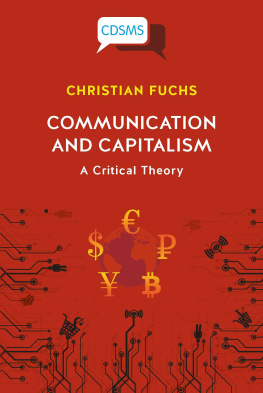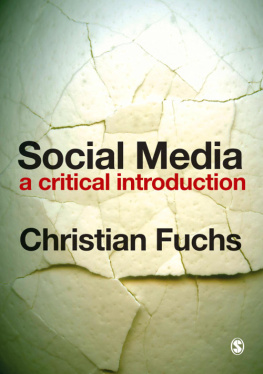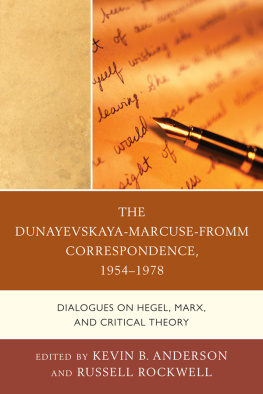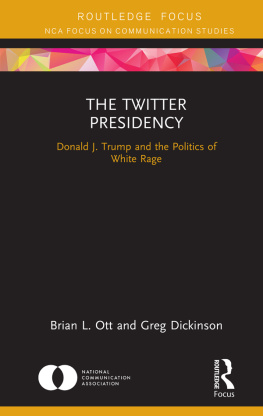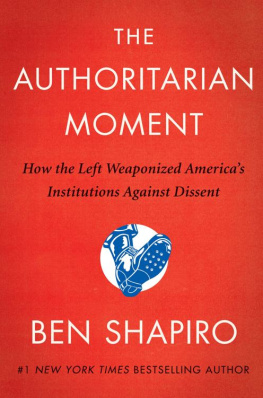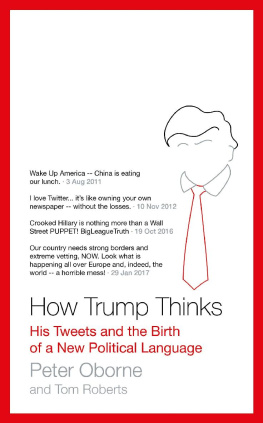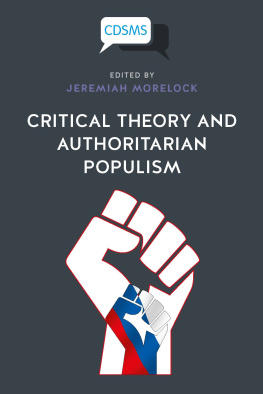Contents
Guide
Digital Demagogue
This book comes with a free eBook, Nationalism 2.0: The Making of Brexit on Social Media, by Christian Fuchs.
By analysing reactions on social media immediately after the results of the Brexit referendum were announced, Fuchs shows how Brexit deeply polarised British society. By using extensive empirical data drawn from the comments and reactions of users who posted on Nigel Farages and Boris Johnsons Facebook profiles, a disturbing picture of a deepening nationalist sentiment appears. Nationalism 2.0 reveals how the political fetishism of nationalist ideologies has displaced attention from the roles of capitalism and class as factors causing social problems today.
To download the eBook, go to bit.ly/nationalism20
Digital Demagogue
Authoritarian Capitalism in
the Age of Trump and Twitter
Christian Fuchs

First published 2018 by Pluto Press
345 Archway Road, London N6 5AA
www.plutobooks.com
Copyright Christian Fuchs 2018
The right of Christian Fuchs to be identified as the author of this work has been asserted by him in accordance with the Copyright, Designs and Patents Act 1988.
British Library Cataloguing in Publication Data
A catalogue record for this book is available from the British Library
ISBN 978 0 7453 3798 2 Hardback
ISBN 978 0 7453 3796 8 Paperback
ISBN 978 1 7868 0281 1 PDF eBook
ISBN 978 1 7868 0283 5 Kindle eBook
ISBN 978 1 7868 0282 8 EPUB eBook
This book is printed on paper suitable for recycling and made from fully managed and sustained forest sources. Logging, pulping and manufacturing processes are expected to conform to the environmental standards of the country of origin.
Typeset by Stanford DTP Services, Northampton, England
Simultaneously printed in the United Kingdom and United States of America
Contents
List of Figures
List of Tables
1
Introduction
POLITICAL CONTEXT
We live in insecure political times, where the intensification of crises has turned into the emergence of authoritarian capitalism:
2016 saw the idea of human dignity and equality, the very notion of a human family, coming under vigorous and relentless assault from powerful narratives of blame, fear and scapegoating, propagated by those who sought to take or cling on to power at almost any cost. [] Donald Trumps poisonous campaign rhetoric exemplifies a global trend towards angrier and more divisive politics. Across the world, leaders and politicians wagered their future power on narratives of fear and disunity, pinning blame on the other for the real or manufactured grievances of the electorate. (Amnesty International 2017, 12)
Donald Trump: America First
In the USA, Donald Trump won the 2016 presidential election with a nationalist campaign that promised to put America first and to make America great again. He used stereotypes, such as the one of immigrants as people coming through the border, that are from all over, and they are bad, they are really bad. [] You have people coming in, and I am not just saying Mexicans. I am talking about people that are from all over that are killers, and rapists, I mean they are coming into this country (Trump 2015c). On the political stage, perhaps the most prominent of many seismic events was the election of Donald Trump as President of the USA. His election followed a campaign during which he frequently made deeply divisive statements marked by misogyny and xenophobia, and pledged to roll back established civil liberties and introduce policies which would be profoundly inimical to human rights (Amnesty International 2017, 12).
India: Narendra Modi
In India, the Bharatiya Janata Party came to power in 2014. Hindu nationalism has proliferated under Prime Minster Narendra Modi. In 2016, authorities used repressive laws to curb freedom of expression and silence critics. Human rights defenders and organizations continued to face harassment and intimidation, and vigilante cow protection groups carried out several attacks. Thousands protested against discrimination and violence faced by Dalit communities (Amnesty International 2017, 183). Sedition charges, among others, were brought against student leader Kanhaiya Kumar from Jawaharlal Nehru University in 2016 for allegedly shouting anti-Indian slogans. Kumar commented:
This government has resorted to dictatorial and fascist ways. Those who speak against them and their ideology are being branded as anti-nationals. Laws like sedition are not needed in a liberal democratic state. It is being misused. It is being used as a political tool by this government. Its the same law drafted by the colonial power. No changes have ever been made. Its being used on the same pattern as the British used it. [] The government is attacking educational institutions. Its a continuous attack against Indias intelligentsia, which talks about protection of constitution, human rights and freedom. Voice of dissent arises from there. [] The scope of freedom of expression has not shrunk but it is under continuous attack from the government. (Khalid 2016).
Turkey: Recep Tayyip Erdoan
Turkeys state has, under President Recep Tayyip Erdoan (Justice and Development Party), become increasingly authoritarian:
On 15 July [2016], factions within the armed forces launched a violent coup attempt [in Turkey]. It was quickly suppressed [] Freedom of expression deteriorated sharply during the year. After the declaration of a state of emergency, 118 journalists were remanded in pre-trial detention and 184 media outlets were arbitrarily and permanently closed down under executive decrees, leaving opposition media severely restricted. People expressing dissent, especially in relation to the Kurdish issue, were subjected to threats of violence and criminal prosecution. Internet censorship increased. At least 375 NGOs, including womens rights groups, lawyers associations and humanitarian organizations, were shut by executive decree in November. [] Signatories to a January petition by Academics for Peace calling for a return to peace negotiations and recognition of the demands of the Kurdish political movement were subjected to threats of violence, administrative investigation and criminal prosecution. Four signatories were detained until a court hearing in April; they were released but not acquitted. By the end of the year, 490 of the academics were under administrative investigation and 142 had been dismissed. Since the coup, more than 1,100 of the signatories were formally under criminal investigation. (Amnesty International 2017, 367, 368)
The Academics for Peace petition demanded that the Turkish government create the conditions for negotiations and create a road map that would lead to a lasting peace which includes the demands of the Kurdish political movement as well as an immediate end to the violence perpetrated by the state. President Erdoan called the signatories so-called intellectuals and a fifth column (Weaver 2016). In the course of the crackdown against alleged supporters of Fethullah Glen, many of the Academics for Peace lost their jobs. They also face an occupational ban from Turkish public services, and many journalists and opposition politicians face legal charges in Turkey. Noam Chomsky (2016a), who signed the petition, has argued that Erdoan installed a deeply authoritarian regime.


